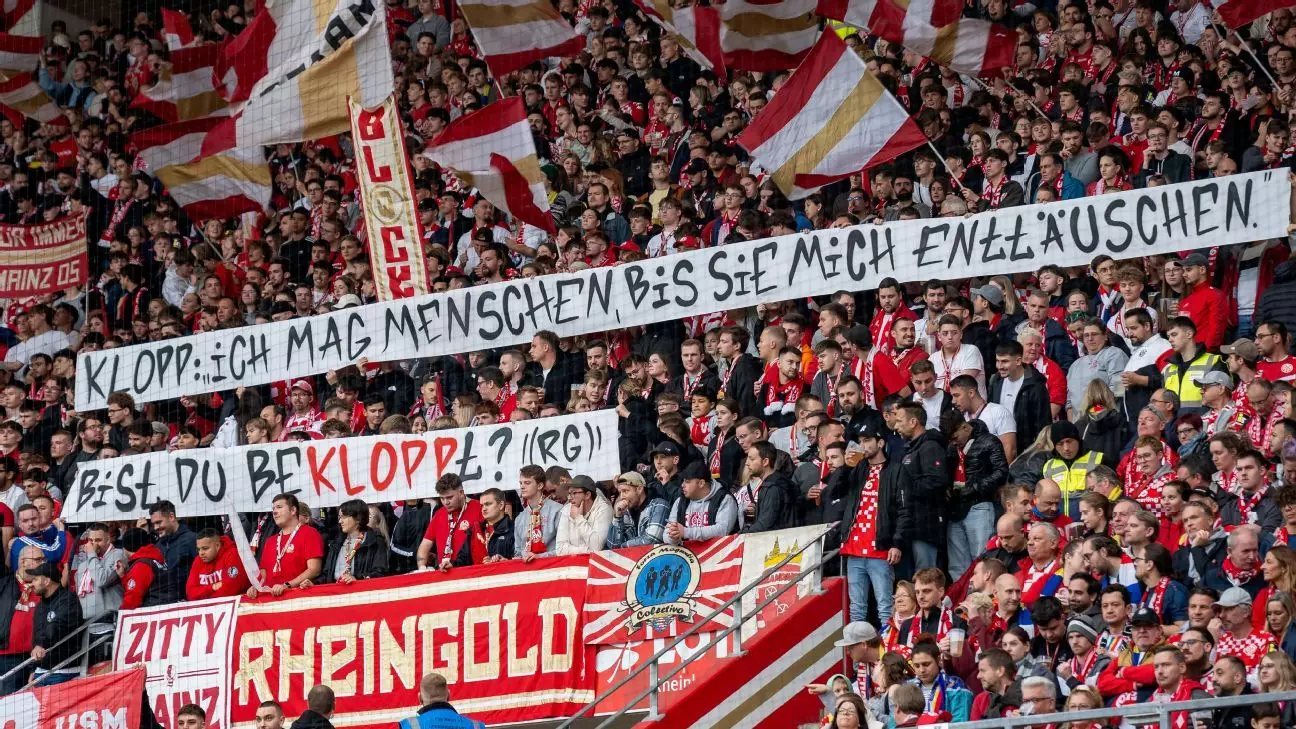The decision of Jürgen Klopp, revered as a managerial genius in football, to align himself with Red Bull and its extensive network of clubs has stirred up significant discontent among the supporters of his former club, Mainz 05. This connection to a globally recognized energy drink company is particularly poignant, as Mainz fans feel betrayed by the man who once promised authenticity and community spirit during his time with the club. When Mainz faced off against RB Leipzig—one of Red Bull’s flagship teams—fans seized the moment to showcase their disapproval through provocative banners, calling into question Klopp’s loyalty to the very values that defined his earlier career.
Fans displayed messages that hit hard, evoking memories of Klopp’s heartfelt farewell when he left Mainz after an eighteen-year tenure that shaped both his and the club’s identity. The banners conveyed a mixture of disbelief and disappointment; one reading, “Have you forgotten everything we gave you?” resonated with a sense of betrayal. Such sentiments reflect a broader trend in football, where financial interests often overshadow loyalty and tradition. The juxtaposition of Klopp’s emotional past at Mainz against his new corporate allegiance raises uncomfortable questions about his integrity and values as a coach.
Red Bull operates a robust framework within the footballing world that includes prominent clubs like RB Leipzig, RB Salzburg, and even franchises like the New York Red Bulls. Their expansion plans into leagues across the globe demonstrate an ambition that carries both promise and controversy. Klopp’s appointment as the head of global football for Red Bull replicates their strategy of merging athletic performance with commercial objectives. This role places him in a position to influence youth development and talent acquisition across continents, but it also ties him to a corporate entity whose approach has often been criticized for its commodification of sport.
For many fans, Klopp’s decision is emblematic of a broader narrative in football, where heritage is frequently sacrificed at the altar of commercial success. His previous accolades, which include transforming clubs like Borussia Dortmund and Liverpool into heavyweight contenders, stand in stark contrast to this new chapter of his career. The calls referencing his past morals, like “I like people until they disappoint me,” underscore a profound disappointment that may linger among his supporters.
While Jürgen Klopp’s move to Red Bull might offer exciting prospects for growth and innovation in the realm of football management, it simultaneously prompts discussions about loyalty, integrity, and the commercialization of the sport. As fans grapple with their feelings of betrayal, Klopp’s legacy as a man who once cherished community and loyalty hangs in the balance, inviting reflection on what truly defines success in the beautiful game.

